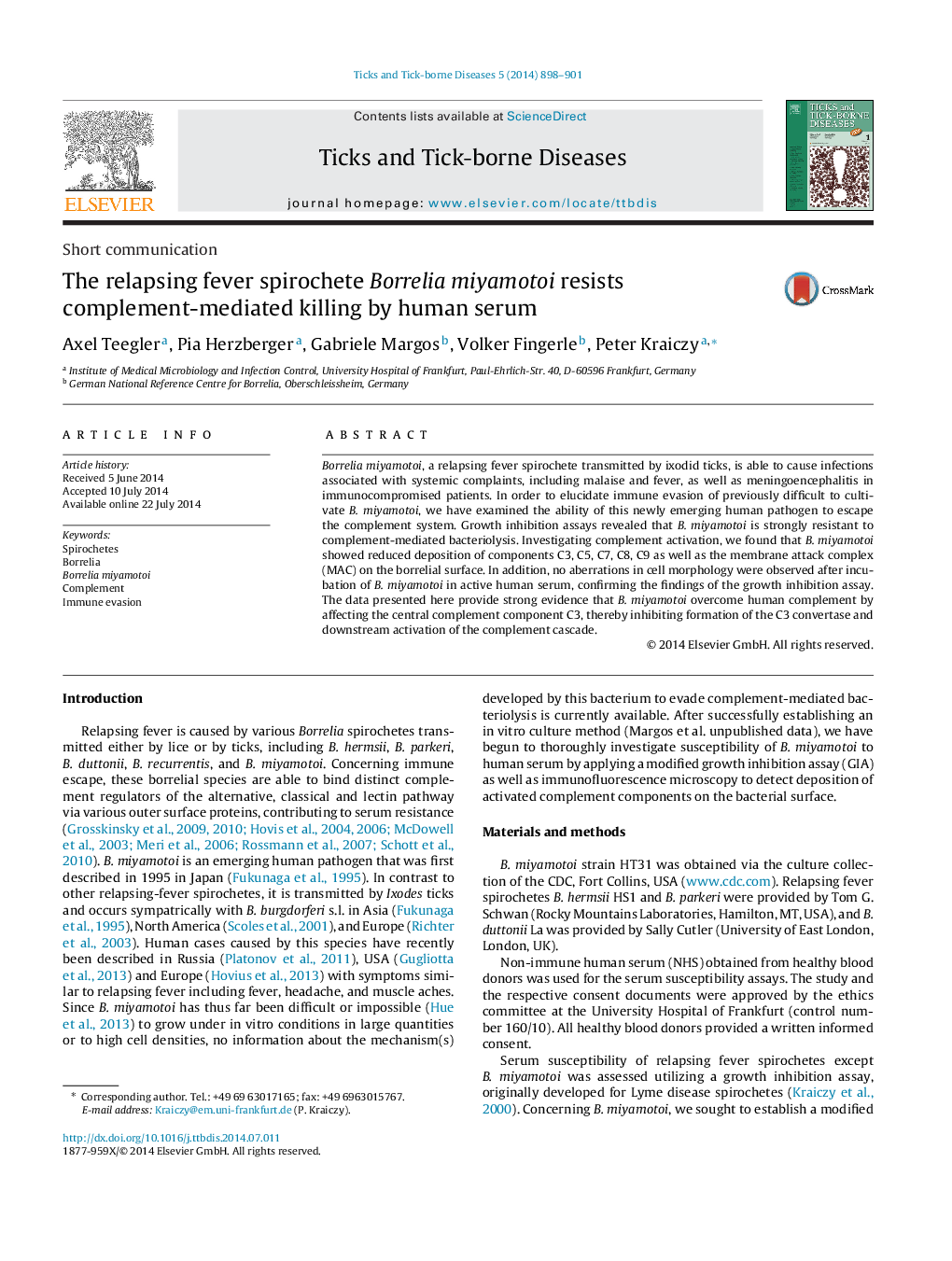| Article ID | Journal | Published Year | Pages | File Type |
|---|---|---|---|---|
| 2474003 | Ticks and Tick-borne Diseases | 2014 | 4 Pages |
Borrelia miyamotoi, a relapsing fever spirochete transmitted by ixodid ticks, is able to cause infections associated with systemic complaints, including malaise and fever, as well as meningoencephalitis in immunocompromised patients. In order to elucidate immune evasion of previously difficult to cultivate B. miyamotoi, we have examined the ability of this newly emerging human pathogen to escape the complement system. Growth inhibition assays revealed that B. miyamotoi is strongly resistant to complement-mediated bacteriolysis. Investigating complement activation, we found that B. miyamotoi showed reduced deposition of components C3, C5, C7, C8, C9 as well as the membrane attack complex (MAC) on the borrelial surface. In addition, no aberrations in cell morphology were observed after incubation of B. miyamotoi in active human serum, confirming the findings of the growth inhibition assay. The data presented here provide strong evidence that B. miyamotoi overcome human complement by affecting the central complement component C3, thereby inhibiting formation of the C3 convertase and downstream activation of the complement cascade.
